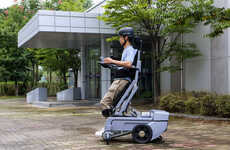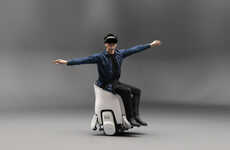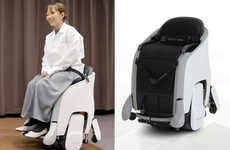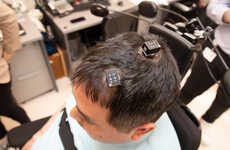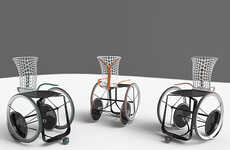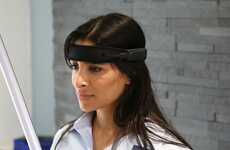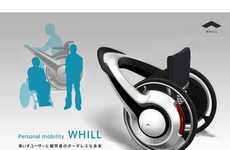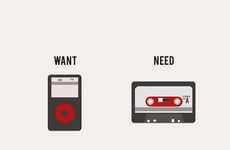
Swiss Researchers Have Developed a Brain-Powered Chair
Josh Milenthal — September 9, 2010 — Tech
References: actu.epfl.ch & engadget
Swiss Researchers are making extreme progress within the field of neuroprosthetics (a.k.a. devices controlled by the brain). The Brain-powered wheelchair by EPFL is the latest technology that gives the user control, using their mind.
Measuring EEG readings to sense brain patterns, it also includes artificial intelligence to give "shared" control to the rider, and allow for a more sophisticated ride. The wheelchair is capable of detecting objects using image-processing software, and can avoid them easily. The technology is capable of differentiating between certain objects as well, such as a desk or cabinet.
Measuring EEG readings to sense brain patterns, it also includes artificial intelligence to give "shared" control to the rider, and allow for a more sophisticated ride. The wheelchair is capable of detecting objects using image-processing software, and can avoid them easily. The technology is capable of differentiating between certain objects as well, such as a desk or cabinet.
Trend Themes
1. Brain-powered Wheelchairs - The development of brain-powered wheelchairs is disrupting the assistive technology market, providing enhanced mobility and independence for individuals with physical disabilities.
2. Neuroprosthetics - Advancements in neuroprosthetics are opening up new possibilities for controlling devices with the mind, revolutionizing assistive technology and medical applications.
3. Artificial Intelligence in Assistive Devices - The integration of artificial intelligence into assistive devices like wheelchairs is transforming how they function, enabling more intuitive and adaptive control for users.
Industry Implications
1. Assistive Technology - The field of assistive technology is being revolutionized by brain-powered wheelchairs, offering innovative solutions for individuals with physical disabilities.
2. Medical Devices - The development of neuroprosthetics and brain-powered wheelchairs is disrupting the medical devices industry, providing new ways to enhance patient mobility and quality of life.
3. Artificial Intelligence - The integration of artificial intelligence into assistive devices like wheelchairs presents exciting opportunities for the AI industry to advance its capabilities and applications in real-world settings.
3.3
Score
Popularity
Activity
Freshness




